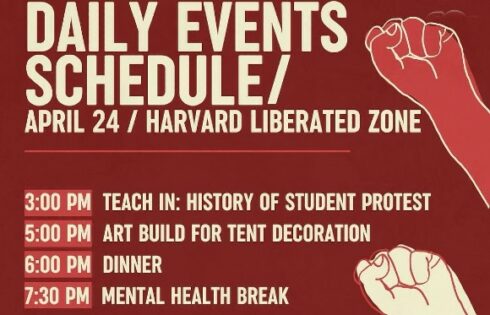
Was it the story that brought one of America’s most venerable colleges to its knees, or was it an exaggerated claim that fooled a nation?
By now, many have heard of the powerful Rolling Stone article published in late November that told the tale of a bright-eyed, bushy-tailed University of Virginia freshman who was allegedly gang raped at a frat party in 2012 in such a brutal and disgusting fashion that administrators have, in the wake of the article’s publication, suspended all fraternity functions, pledged a zero-tolerance on sexual assault, profusely apologized, and promised a more thorough police investigation. Meanwhile, the school’s reputation may have been irreparably harmed.
Here are some details from the claim in Rolling Stone:
Jackie had taken three hours getting ready, straightening her long, dark, wavy hair. She’d congratulated herself on her choice of a tasteful red dress with a high neckline. Now, climbing the frat-house stairs with Drew, Jackie felt excited. Drew ushered Jackie into a bedroom, shutting the door behind them. The room was pitch-black inside. Jackie blindly turned toward Drew, uttering his name. At that same moment, she says, she detected movement in the room – and felt someone bump into her. Jackie began to scream.
“Shut up,” she heard a man’s voice say as a body barreled into her, tripping her backward and sending them both crashing through a low glass table. There was a heavy person on top of her, spreading open her thighs, and another person kneeling on her hair, hands pinning down her arms, sharp shards digging into her back, and excited male voices rising all around her. When yet another hand clamped over her mouth, Jackie bit it, and the hand became a fist that punched her in the face. The men surrounding her began to laugh. For a hopeful moment Jackie wondered if this wasn’t some collegiate prank. Perhaps at any second someone would flick on the lights and they’d return to the party.
“Grab its motherfucking leg,” she heard a voice say. And that’s when Jackie knew she was going to be raped.
She remembers every moment of the next three hours of agony, during which, she says, seven men took turns raping her, while two more – her date, Drew, and another man – gave instruction and encouragement. She remembers how the spectators swigged beers, and how they called each other nicknames like Armpit and Blanket. She remembers the men’s heft and their sour reek of alcohol mixed with the pungency of marijuana. Most of all, Jackie remembers the pain and the pounding that went on and on.
When I first read it, I remember feeling a mix of shock, revulsion, sadness – and yes, a bit of incredulity. The details of this horrific incident are so powerful that they have indeed shocked a nation and brought one of the most respected campuses in the country into a constant state of damage control.
But is everything in that Rolling Stone account the God’s-honest truth?
Do I believe something horrible happened to Jackie that fateful night? Yes. I have experienced the frat culture and I know it can be a gritty place where alcohol and drug-induced peer pressure and feelings of entitlement sometimes trump compassion and reason, where a pack mentality can take over and prompt young men to disavow their morality.
But it’s the finer details of Jackie’s claim that bother me – most notably that she could be gang raped over shards of broken glass for three consecutive hours and not bleed to the point of needing hospitalization. That just seems medically implausible from a subjective standpoint.
Also, when Jackie awoke at 3 a.m. after the assault and stumbled unnoticed out of the frat house as the party raged on even though she was horribly disheveled and bleeding, then called her friends to come get her and explained what happened – only to be told by them just go home and sleep it off so she wouldn’t ruin their school’s reputation or their chances at getting into more frat parties: Seriously?
I remember thinking – how is that even possible for “friends” to say such a thing if she was bleeding after getting gang raped by seven guys? You almost have to suspend reality to buy that.
Others have similar questions. Reason staff editor Robby Soave writes:
So when I say that I was initially inclined to believe the story, it’s not because I wanted or needed it to be true to fit my worldview. Rather, I assumed honesty on the part of the author and her source—not because I’m naive, but because I didn’t think someone would lie about such an unbelievable story. This isn’t a case of he-said / she-said; this is an extraordinary crime that indicts a dozen people and an entire university administration. Assuming a proper investigation—which the police are now conducting—confirming many of the specific details should be relatively easy. If “Jackie” is lying, there is a good chance she will be caught (and Rolling Stone author] Erdely’s career ruined). So I believed it.
However, some of the details do strike me as perplexing on subsequent re-reads. One issue now being raised by skeptics is the nature of her injuries, which sound as if they would have required immediate medical attention. (According to the story, everybody involved was basically rolling around in broken glass for hours.) If the frat brothers were absolute sociopaths to do this to Jackie, her friends were almost cartoonishly evil—casually dismissing her battered and bloodied state and urging her not to go to the hospital.
Soave, in his piece, also cites two other recent stories that call into question the finer details of what happened in that room that night.
In one, the author of the Rolling Stone article tells The Washington Post: “I find [Jackie] completely credible. It’s impossible to know for certain what happened in that room, because I wasn’t in it. But I certainly believe that she described an experience that was incredibly traumatic to her.” (The article goes on to suggest that since no one has come out and denied the allegation that lends it credibility.)
OK, something happened. But what, exactly? Longtime journalist Richard Bradley isn’t sure, either. Bradley – who was one of the ones burned by the infamous Stephen Glass, who at the height of his journalistic career in the 1990s fabricated stories everyone believed at the time – offers words of caution and many good questions in a lengthy blog post:
The lesson I learned [from Glass]: One must be most critical, in the best sense of that word, about what one is already inclined to believe. So when, say, the Duke lacrosse scandal erupted, I applied that lesson. The story was so sensational! Believing it required indulging one’s biases: A southern school…rich white preppy boys…a privileged sports team…lower class African-American women…rape. It read like a Tom Wolfe novel.
And of course it never happened.
As for the UVA gang rape claim, Bradley writes:
I don’t believe that it happened—certainly not in the way that it is recounted. … The first thing that strikes me about it, of course, is that Jackie is never identified. … Then we have three friends who talked to Jackie right after the rape, and apparently discouraged her from going to the hospital or the authorities because they might subsequently be banned from frat parties. Not one of them is named, or interviewed; so the three people who could allegedly corroborate the assault don’t. … Finally there’s the narrative of the gang rape itself. It is a terrible story—so terrible that, if it weren’t for the power of our preexisting biases, we would be hard-pressed to believe it. …
A young woman is led into a “pitch-black” room. She is shoved by a man, who falls on her; they crash through a glass table and she lands in shards of glass. She bites his hand; he punches her; the men laugh. (Really? A man punches a woman and people laugh?) With the smell of marijuana (not usually known as a violence-inducing drug) hovering over the room, he and six more men rape her. The last uses a beer bottle; allegedly he can not get an erection, so his fellow frat brothers goad him on, mock him, then finally give him a tool with which to violate Jackie. (This is the man whom Jackie allegedly knew because they were in an anthropology seminar together.) This, after all, is who men really are, in anonymous darkness. …
Having been raped for three hours while lying in shards of glass “digging into her back”—three hours of which Jackie remembers every detail, despite the fact of the room’s pitch-blackness—she passes out and wakes up at 3 AM in an empty room.
Again: It’s possible. You can’t say it isn’t. But I am reminded of the urban myth about someone waking up in a bathtub full of ice in New Orleans. This story contains a lot of apocryphal tropes.
I agree with Bradley. There’s a joke in journalism: Don’t let the facts get in the way of a good story. Is this what happened here? Quite possibly.
Jennifer Kabbany is editor of The College Fix.
Like The College Fix on Facebook / Follow us on Twitter
Like The College Fix on Facebook / Follow us on Twitter





Please join the conversation about our stories on Facebook, Twitter, Instagram, Reddit, MeWe, Rumble, Gab, Minds and Gettr.